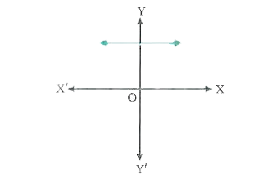Give examples of polynomials p(x),g(x),q(x) and r(x), which satisfy the division algorithm and
degq(x)=degr(x)Solution in Gujrati
Step by step video & image solution for Give examples of polynomials p(x), g(x), q(x)" and "r(x), which satisfy the division algorithm and deg q(x)= deg r(x) by Maths experts to help you in doubts & scoring excellent marks in Class 10 exams.
Updated on:21/07/2023Topper's Solved these Questions
- POLYNOMIALSBOOK - KUMAR PRAKASHANCHAPTER - POLYNOMIALSEXERCISE - EXERCISE 2.4
6 Videos
- POLYNOMIALSBOOK - KUMAR PRAKASHANCHAPTER - POLYNOMIALSEXERCISE - TEST YOUR SKILLS
33 Videos
- POLYNOMIALSBOOK - KUMAR PRAKASHANCHAPTER - POLYNOMIALSEXERCISE - EXERCISE 2.2
12 Videos
- PAIR OF LINEAR EQUATIONS IN TWO VARIABLES BOOK - KUMAR PRAKASHANCHAPTER - PAIR OF LINEAR EQUATIONS IN TWO VARIABLES EXERCISE - Test Your Skills
48 Videos
- PROBABILITY BOOK - KUMAR PRAKASHANCHAPTER - PROBABILITY EXERCISE - OBJECTIVE QUESTIONS (State whether each of the following statements is true or false:)
5 Videos
Similar Questions
Verify that the numbers given alongside of the cubic polynomials below are their zeroes. Also verify the relationship between the zeroes and the coefficients in each case :
2x3+x2−5x+2,12,1,−2
View SolutionThe graphs of y=p(x) are given in the figures below, for some polynomials p(x) find the number of zeroes of p(x) :

View SolutionFind the zeroes of the following quadratic polynomials and verify the relationship between the zeroes and the coefficients :
x2−2x−8
View SolutionIf the numerator of a fraction is decreased by 1. It reduces to 12 and if its numerator is increased by 1. it reduces to 1. Represent this situation algebraically and graphically.
View SolutionFor any event A, P (A) is always greater than P(¯¯¯A).
View SolutionGive example of polynomials p(x),g(x),q(x) and r(x) which satisfy the division algorithm and
(i) degp(x)=deg q(x)
(ii) deg q(x)=deg r(x)
(iii) deg r(x)=0
View SolutionGive example of polynomials p(x), g(x), q(x) and r(x), which satisfy the division algorithm and
(i) deg p(x) = deg q(x).
View SolutionGive example of polynomials p(x), g(x), q(x) and r(x), which satisfy the division algorithm and
(ii) deg q(x) = deg r(x).
View SolutionGive example of polynomials p(x), g(x), q(x) and r(x), which satisfy the division algorithm and
(iii) deg r(x) = 0.
View SolutionGive examples of polynomials p(x), g(x), q(x) and r(x), which satisfy the division algorithm and
deg q(x) = deg r(x)
View SolutionGive examples of polynomials p(x), g(x), q(x) and r(x), which satisfy the division algorithm and
deg r(x) = 0
View Solution(i) Give examples of polynomials p(x),g(x),q(x) and r(x), which satisfy the division algorithm and
deg p(x)=deg q(x)
(ii) Give examples of polynomials p(x),g(x),q(x) and r(x), which satisfy the division algorithm and
deg q(x)=deg r(x)
(iii) Give examples of polynomials p(x),g(x),q(x) and r(x), which satisfy the division algorithm and
deg r(x)=0
View SolutionGive examples of polynomials p(x),g(x),q(x) and r(x), which satisfy the division algorithm and
deg q(x) = deg r(x)
View SolutionGive examples of polynomials p(x),g(x),q(x) and r(x), which satisfy the division algorithm and
deg r(x) = 0
View SolutionGive examples of polynomials p(x),g(x),q(x) and r(x), which satisfy the division algorithm and
deg p(x) = deg q(x)
View Solution
